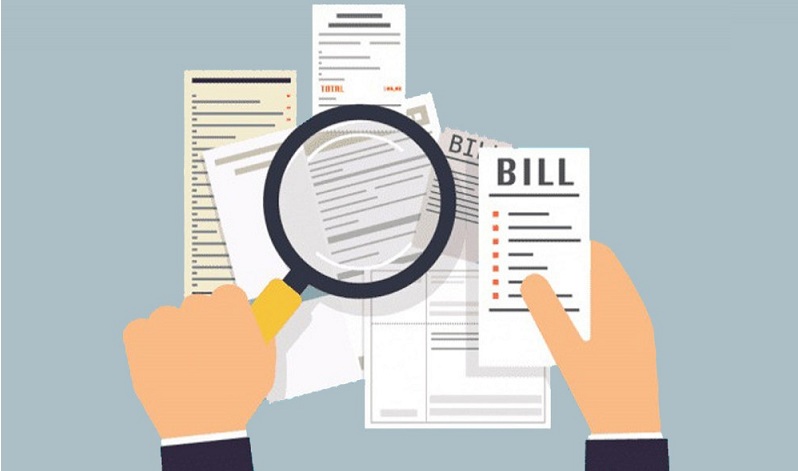
61,265 power bills inflated

The power ministry on Sunday apologised for some 61,265 incidents of bill manipulation by its employees across Bangladesh during the COVID-19 lockdown from March to May.
The number surfaced after the six state-owned power distributors investigated complaints received from their consumers alleging that the power bills they received during the lockdown were many times their usual bills.
Overbilling during the pandemic killing dozens everyday and infecting hundreds has laid bare the extent of corruption persisting in the power sector, said victims and power experts.
‘I extend apologies to the victims of excessive power billing,’ said power secretary Sultan Ahmed in an online press briefing on Sunday.
‘I promise to win back their trust with our service, with an uninterrupted supply of quality power,’ he said after giving an account of the overbilling complaints settled by the country’s power distributors.
He assured that the people would pay only for what they consume and promised of finding out all excessive bills and adjusting them.
The overbilling largely occurred in March and April, when the distributors sent their consumers estimated power bills as the COVID-19 crisis hampered meter reading.
‘Obviously the distributors are responsible for excessive billing because they were clearly instructed to prepare estimated bills in light of their consumers’ past usage records,’ said Sultan.
The Dhaka Power Distribution Company Limited reported 15,266 bill manipulations, which means that 1.65 per cent of its 9.26 lakh customers received exaggerated bills.
The DPDC reported relatively a higher number of bill manipulations than the other distributors because it was the only distributor to look beyond complaints and track down every incident of excessive billing.
‘We did not wait for the consumers to complain rather tried to find out every single irregularity on our own,’ said DPDC managing director Bikash Dewan.
The actual number of bill manipulations across the country is thus likely to be many times the number announced because many people chose not to complain, as the case was with the DPDC, relying on the government assurance that their excessive bills would be adjusted.
The DPDC has suspended four of their employees and ordered 36 of its executive engineers to explain the discrepancies found in power bills prepared under them.
The DPDC also asked outsourcing companies to suspend 14 meter readers supplied by them for their intentional manipulation of meter readings.
The Dhaka Electric Supply Company Limited has suspended two meter readers and served show-cause notices on nine others asking them to explain discrepancies in bills sent to 5,600 consumers.
The consumers that complained to the DESCO about excessive bills represented 0.79 per cent of its total consumers numbering one million.
The largest power distributor, Rural Electrification Board, received complaints from 34,681 consumers, 0.12 per cent of their total 2.90 crore consumers.
A total of 2,524 consumers of the Northern Electricity Supply Company Limited, 0.16 per cent of its total 15.48 lakh consumers, complained about excessive billing.
The West Zone Power Distribution Company Ltd received 555 complaints while the Power Development Board received 2,582 complaints about excessive bills.
The REB and the PDB were yet to take any action against any of its employees.
The NESCO suspended two meter readers and transferred an executive engineer as punishment.
The WZPDCO asked 223 employees to explain discrepancies in their power bills.
Power secretary Sultan Ahmed said that the negligence of some power officials undermined the backbreaking work of thousands of others working to ensure power supply during the pandemic.
‘The coronavirus already infected 602 employees of power companies and killed 12,’ said Sultan.
Many people, however, began to doubt the declaration that the discrepancies would be promptly adjusted for they did not get these settled even after complaining on several occasions.
Abul Maruf, a resident of Paikpara, Mirpur, was handed a Tk 12,764 bill for March, far greater compared to Tk 1,583 he was billed for the corresponding month last year.
In May, he complained to the DESCO about it and had it revised to Tk 3,961.
‘The bill is still much higher than what I thought it should be but I paid it anyway,’ said Maruf.
Bangladesh has 3.90 crore power consumers, most of them being household consumers.
Consumers Association of Bangladesh has long blamed corruption, mismanagement and inefficiency in the power sector responsible for its growing deficit.
Last year the power sector deficit stood at Tk 8,000 crore.
CAB said that the power sector could easily save Tk 10,549 crore a year just by curbing corruption, ensuring better management and increasing efficiency.
Editor & Publisher: S. M. Mesbah Uddin
Published by the Editor from House-45,
Road-3, Section-12, Pallabi, Mirpur
Dhaka-1216, Bangladesh
Call: +01713180024 & 0167 538 3357
News & Commercial Office :
Phone: 096 9612 7234 & 096 1175 5298
e-mail: financialpostbd@gmail.com
HAC & Marketing (Advertisement)
Call: 01616 521 297
e-mail: tdfpad@gmail.com